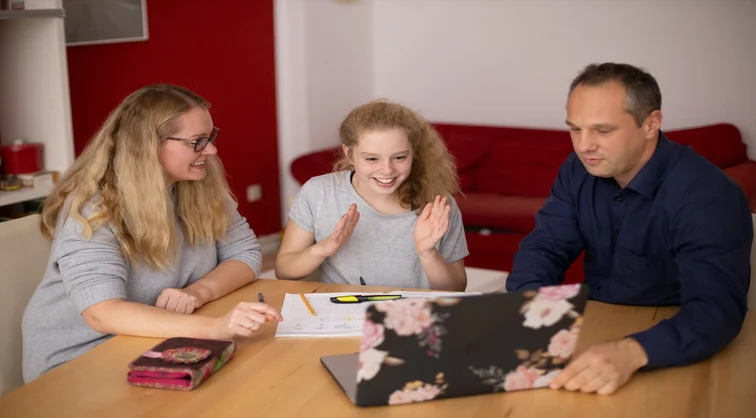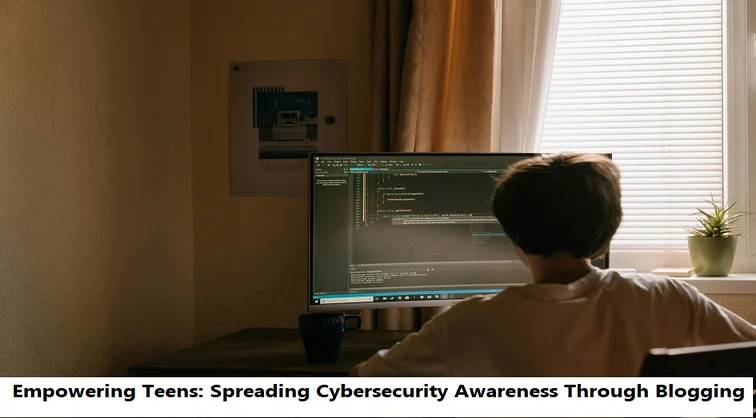+1 845 259 2974 (11 a.m to 7 p.m CST)
How Parents Can Help Teens Distinguish Credible from Non-Credible Information Online

In the age of information overload, where facts and fiction blur seamlessly online, it’s become increasingly challenging for teens to discern credible from non-credible information. As parents, our role in guiding our children through this digital landscape is more important than ever. With an overwhelming array of sources available at their fingertips, teens may struggle to evaluate the reliability of the information they encounter.
This responsibility falls on us, as parents, to equip them with the necessary skills to navigate this complex environment confidently. Just as we would guide them in academic challenges, such as finding a trustworthy writing service to write my college essay fast, we must also teach them how to sift through online information critically. It’s about instilling in them an inquisitive mindset and a discerning eye.
Understanding the Basics of Online Information
Understanding the basics is the first step. Explain to your teen that not everything they read online is true. The internet is a mix of verified facts, personal opinions, misinformation, and outright falsehoods. It’s crucial to evaluate online content with a critical eye, questioning the source and the intent behind the information.
Teach your teen to look for signs of credibility in online content. Reliable sources often have a reputation for accuracy, display transparency about their authorship, and provide evidence to back up their claims. Encourage your teen to cross-check information across multiple reputable sources. This practice reinforces the habit of verification and introduces them to the concept of consensus in reliable reporting.
Evaluating Sources
Teens must learn how to evaluate the sources of their information:
- Examine the Author’s Background: Investigate the qualifications and professional bio of the author.
- Assess the Source’s Reputation: Use well-known and respected publications or official websites.
- Identify Potential Bias: Stay alert to biases that might influence the content’s perspective.
- Verify with Additional Sources: Cross-reference with other reliable sources.
- Verify Timeliness: Confirm that the information is recent and relevant.
- Understand the Intent Behind the Information: Ascertain whether the content aims to educate, influence, entertain, or promote.
- Citations and References: Good articles should reference their sources.
- Quality of Writing: Poor grammar and spelling can be a red flag for credibility.
Teaching Critical Thinking Skills
Critical thinking is key in distinguishing credible information from non-credible sources. Prompt your child to make queries about the information they encounter. Who is the author? What is the goal of this piece? Could this be a biased viewpoint?
Also, stress the significance of context. Sometimes, information is technically true but misleading because it lacks context. By understanding the bigger picture, your teen can better assess the accuracy and relevance of the information they find online.
Encouraging Healthy Skepticism
Healthy skepticism is a vital skill in the digital age. It may include:
- Questioning Sensational Headlines: Teach them to be wary of clickbait.
- Analyzing the Evidence: Look for solid evidence supporting a claim.
- Being Wary of Anecdotal Evidence: Personal stories aren’t always universal truths.
- Recognizing Emotional Manipulation: Be aware of content designed to elicit strong emotions.
- Watching Out for Overgeneralizations: Broad claims often lack nuance and accuracy.
- Avoiding Echo Chambers: Seek diverse perspectives to get a well-rounded view.
- Understanding the Dangers of Confirmation Bias: Challenge pre-existing beliefs with new information.
Discuss the difference between skepticism and cynicism with your teen. Skepticism is about questioning and seeking the truth, while cynicism may lead to dismissing everything, whether it’s true or not.
The Role of Fact-Checking Websites
Introduce your teen to the concept of fact-checking websites. These platforms, like Snopes or FactCheck.org, are dedicated to uncovering the truth behind popular claims and news stories. Explain how these sites work, how they research claims, and how they present their findings.
Encourage your teen to use these resources as a secondary check when they come across questionable information. This habit not only reinforces their fact-checking skills but also introduces them to reliable tools that can aid their search for truth.
Navigating Social Media Wisely
Social media is a minefield when it comes to credible information. Talk to your teen about how social media algorithms often promote sensational or emotionally charged content. This content isn’t always accurate or well-researched.
Teach them to be discerning about what they share online. Encourage them to follow reputable news outlets and verified experts instead of relying solely on viral posts or unverified sources. Remind them that their shares and likes can contribute to the spread of misinformation.
Staying Informed and Updated
The online content is continually developing, and so are the means used to spread misinformation. Encourage your teen to stay educated on the latest trends in digital literacy.
Discuss how learning is a continuous process. Encourage them to attend workshops, follow credible online courses, or read books on media literacy. By staying informed, they can adapt their strategies for discerning credible information and remain one step ahead in the digital world.
Wrapping Up
Distinguishing credible from non-credible information online is an ongoing learning process. Just as the best assignment writing service does the research and checks the relevance of the sources it uses in academic writing, teens need to learn how to apply the same approach to the information they see online on a daily basis. It’s about empowering teens to be informed and responsible digital citizens.
The skills your teen develops through this process extend far beyond just assessing online content. They are cultivating critical thinking, analytical skills, and informed judgment to serve them in all aspects of life.

















